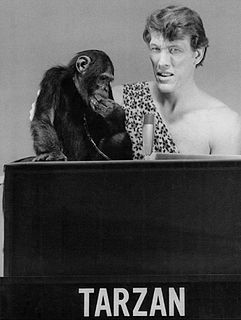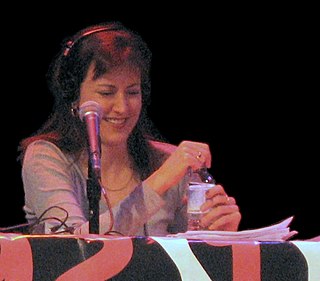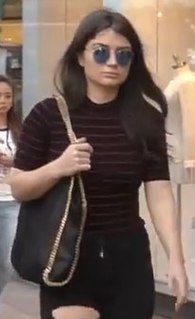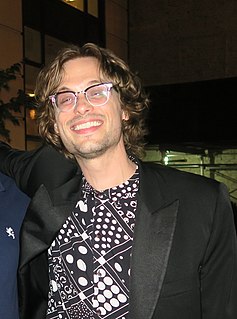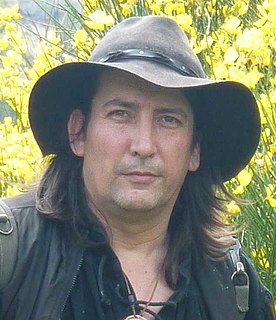A Quote by Ted Cassidy
Getting Lurch's character straightened out was fun because I was brand new to professional film acting. I had only been in radio up till then as an announcer or a program director.
Related Quotes
I did community theater and kids programs at professional theaters and plays at school and voice lessons for seven years. I stopped because it was so time-consuming. But then I realized that I had access to this world where I could go on auditions. And there wasn't too much of an identity crisis when I started acting professionally because I had been acting longer than I had been writing. It didn't feel new.
I did some professional radio acting as a teenager, and I essentially put myself through college with radio acting in Montreal. When I graduated, I got jobs in professional theatres, repertory, and stock theatres in Canada for a couple of years. And then I went to Stratford, Ontario, where I spent three years with a Shakespeare company. We took a classical play from Stratford to New York City, and I got some good notices there and essentially stayed and did live television. And that brings you to the beginning of filming.
My tutor was a film director on the side, and she introduced me to film. She then put me in one of her short films, and it came out of that. That's when I fell in love with the process of making a film. After that, I was about 15 and I was like, "This is what I've gotta do." So, I started taking acting lessons, and then I applied to college to do acting. I got an agent, and it all just happened.
Think of anger as a muscle. The way you express anger isn't the way that I do, or you. If you have a good director, you will find that he's getting you to use an entirely different muscle that you never even knew you had - it's real hard and sore, then after a while it becomes normal. And you discover all these new muscles when you enter a new character - that's what a director does for you.
Film’s thought of as a director’s medium because the director creates the end product that appears on the screen. It’s that stupid auteur theory again, that the director is the author of the film. But what does the director shoot-the telephone book? Writers became much more important when sound came in, but they’ve had to put up a valiant fight to get the credit they deserve.
To me, acting is a matter of absolute concentration. You can laugh and giggle with your friends up to the minute the director says, "Action!" Then you snap your mind into shape and into the character that you're playing and relate to the people that you're acting with and forget everybody else that you've been joking with.
'Smoke On The Water' was ignored by everybody to begin with. We only did it in the shows because it was a filler track from 'Machine Head.' But then, one radio station picked up on it, and Warner Bros. edited it down to about three and a half minutes. It then started getting played by lots of different radio stations.
Tisch has a great film program and a great acting program, but they are segregated; you don't really intertwine. My peers knew I liked acting, so they'd be like, 'Go get that guy Gubler. He'll be in your student film.' I was in the same building. I became their go-to guy. So I left NYU having been in probably one thousand short films.
The thing about acting is even if you get technically more skilled at what you do, every time you begin a film or a play you're terrified. You don't know if you're going to pull it off. Every film and every story has its own set of challenges. I've never felt like, oh yeah, that's it, nailed it! You can never sit and rest. That's why it's such an exciting job. It's beginning again every time you begin again. New story, new character, new place, new time, new director. It's like moving to a different planet and trying to figure out how to live there.
